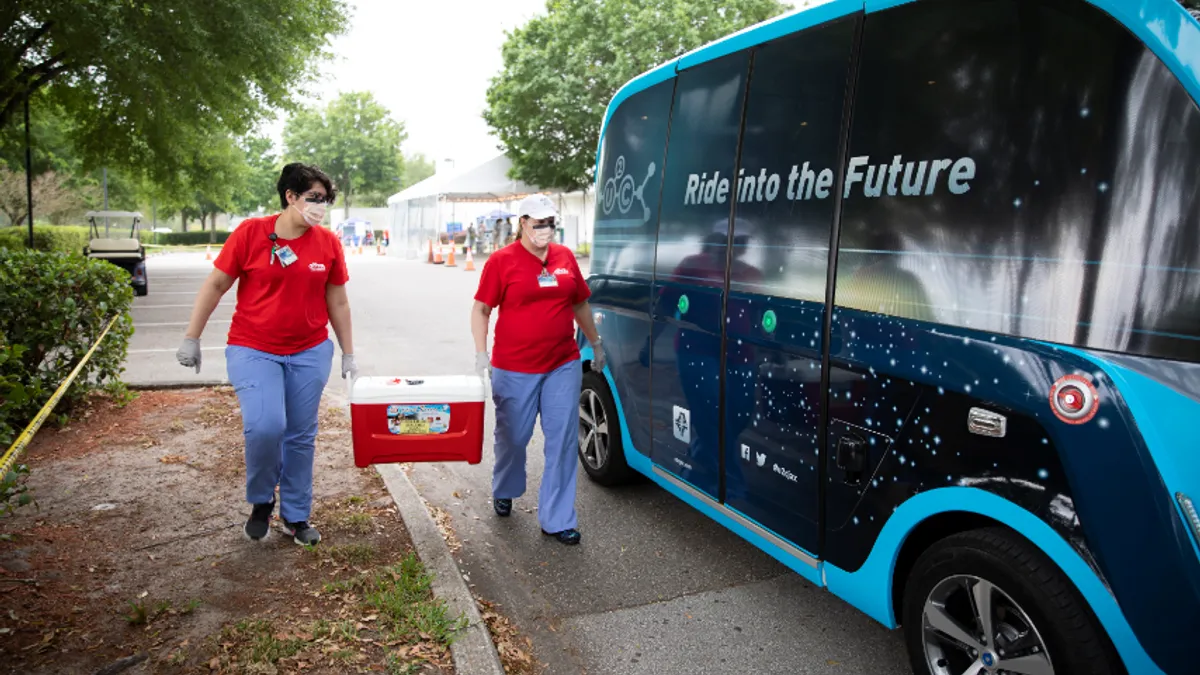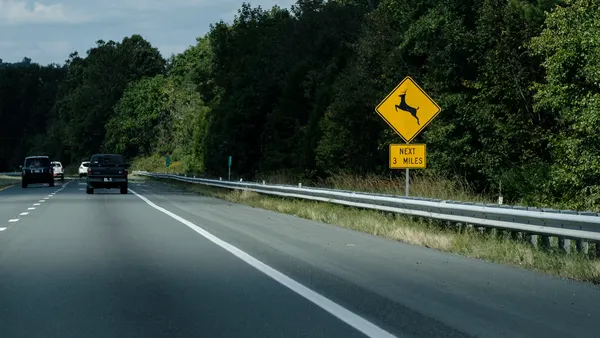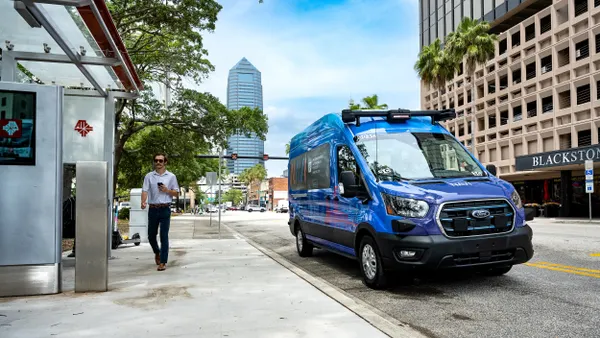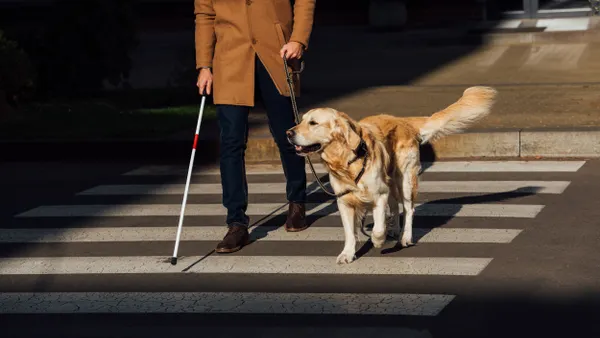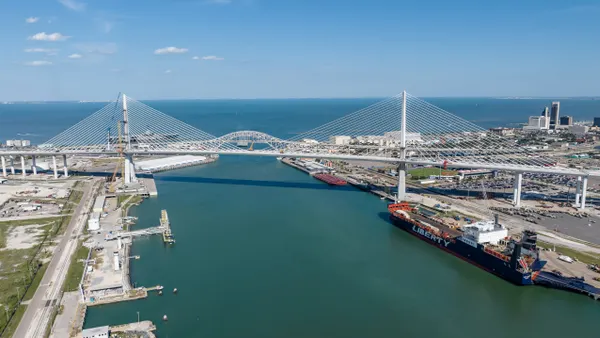Dive Brief:
- The Jacksonville Transportation Authority (JTA) has partnered with autonomous mobility companies Beep and NAVYA to transport COVID-19 tests from a drive-thru testing site to a processing laboratory on the Mayo Clinic's Florida campus, using unmanned autonomous vehicles (AVs).
- The vehicles are currently transporting up to 150 tests a day, which enables the Mayo Clinic to reassign personnel to other important tasks, JTA CEO Nat Ford told Smart Cities Dive. There are also potential opportunities for Mayo to utilize the vehicles further during the pandemic, like in transporting laundry from the hospital to the washing facility, he said.
- Beep and NAVYA are offering the vehicles and services pro bono, while the Mayo Clinic is providing electricity to charge the vehicles. JTA is paying some of its staff "around the clock" to keep this operation running safely, Ford said. But he ensured it's a "small investment" considering the initiative's benefits for the health of the community and JTA's larger understanding of AV operations.
Dive Insight:
Since 2017, JTA has actively tested AV technology as part of its Ultimate Urban Circulator (U2C) program, designed to turn the city's aging 2.5-mile Skyway into a 10-mile AV system. In 2018, the city received a $12.5 million grant from the U.S. Department of Transportation (USDOT) to build the first phase of the system. It also set up an AV test track to assess various vehicle technologies, safety issues and resident engagement.
The global outbreak of COVID-19 disrupted U2C's plans, but presented a unique opportunity for JTA to reimagine how AVs can be used in everyday life. While many agencies consider AVs as a way to move people, the coronavirus sparked ideas about using AVs to move goods, according to Ford.
"With automation and thinking outside the box, we can solve a host of problems by not just sticking to the routine way of doing things," Ford said, noting that this partnership has given the JTA a fresh learning experience and better understanding of AV operations.
It's possible JTA will expand its use of AVs to assist in other areas of coronavirus aid and mitigation, Ford said. JTA also put strict criteria in place when entering this partnership to ensure the vehicles are sanitized often and can be repurposed post-pandemic.
"The protocols that we put around this effort more than assured me as a CEO that this was a safe deployment and more life-enhancing than the negative potential that could come from negative stigma or misinformation," Ford explained.
In the meantime, JTA is leaning on the strong support of its board of directors, business community and elected officials to continue thinking creatively about transportation innovation.
“The sky’s the limit in terms of what could come out of a project like this," Ford said.
To keep up with all of our coverage on how the new coronavirus is impacting U.S. cities, visit our daily tracker.



